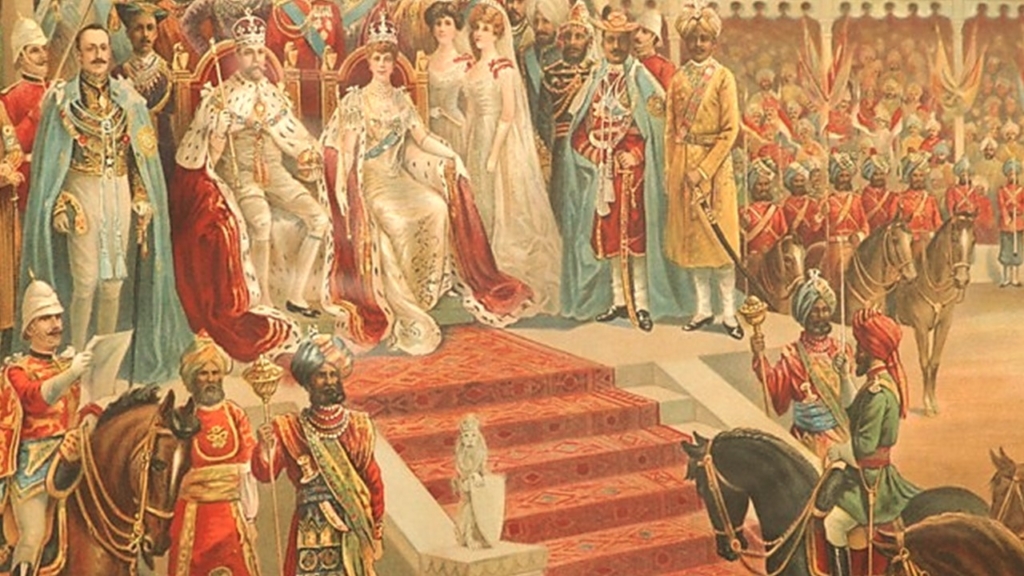The more I study the primary sources of the Pakistan movement, the more I feel that the history of the British period has seldom been written from the perspective of All-India Muslim League (which I dare call the Muslim point of view). Of course, there are a few exceptions such as Pakistan Naguzeer Thha by Syed Hasan Riaz, which have laid down the foundation but the need to construct further on those foundations still remains. I feel that we may need to start by understanding how the League’s perspective was different from the British and the Indian nationalists’ – the two we are most familiar with.
The British parliament usually asserted that its rule over India was temporary. Its aim was to supervise the evolution of democracy in India through a series of gradual reforms (initially introduced every twentieth year and later every tenth year, with occasional delays). From this point of view, the goal was achieved at last and the departure of the British in 1947 was the fulfilment of a promise made long ago.
This narrative is no longer popular. Leaving aside the criticism, the model of politics that emerges from it is that of a benevolent government established without the explicit consent of the people but working towards their betterment by involving them in some way. It seems that this model is followed, consciously or unconsciously, by the military regimes in Pakistan. It works on certain times, apparently because the people got used to it during the hundred and fifty years of the British Raj.
The second narrative, presented by Indian National Congress, centres around so-called revolts. Most notable are the non-cooperation movements launched by Gandhi in 1920, 1930, 1932 and 1942. The aim of these movements was either the demand of immediate constitutional reforms (as opposed to the British schedule of ten-year plans), or sometimes, the immediate expulsion of the British. Unfortunately, none of these movements ever succeeded in achieving its acclaimed goal, and was invariably called off within a year or two.
Due to the overwheleming amount of literature and media produced in support of this narrative, it might be very difficult today to discuss it objectively without getting entangled with emotional conflicts, and some digressions. May I suggest that I am not questioning anybody who says that the tactics used by Gandhi can achieve results. I can think of certain circumstances where they can indeed be successful. The fact remains that the four major movements launched by him in British India did not achieve their acclaimed goals.
Those who prefer the Gandhi-Congress narrative have to say that the British had been lying all along, and would not have left India even in 1947 if their power had not been weakened by the periodical ‘revolts’ of Gandhi. Unlike most other narratives, which get enriched through integration of counter-narratives, the Gandhi-Congress narrative lacks the capacity for accommodating any part of the British narrative at all.
The political lesson derived from it is a political party need not achieve its goals, unlike the general norm in decent democracies. It can fail and still justify itself by accusing its opponents of being evil, and by measuring its success through displays of street power, ability to shut down civil life, and so on. Moreover, a political party can be led by a demigod not answerable to the general body (Gandhi was not even a member of the Congress but he ruled over it for thirty years, and never presented himself in a general election).
It might be observed sadly that this model seems to have been followed in India to this date, and is being emulated by other countries of the developing world. It has produced a completely false conception of ‘democracy’, which is democracy only in name and to some extent in its outward form, but lacks all the known principles of democracy.
The so-called politicians in Pakistan seem to have started emulating this model some twenty years after the birth of their state, i.e. from 1967 (including the present-day Bangladesh at that time). If so, it need not surprise us that they have seldome delivered what they promised, and became unpopular soon after getting elected. Perhaps unconsciously, the nation recognized in their governing style the spirit of its former adversaries.
But why Pakistani politicians converted so whole-heartedly to the Gandhi-Congress model of politics in 1967? Perhaps the answer is that the Pakistani intelligentsia failed to present the third narrative of the recent history, the perspective of All-India Muslim League. This is what I hope to discuss in a separate post, sometime soon.
